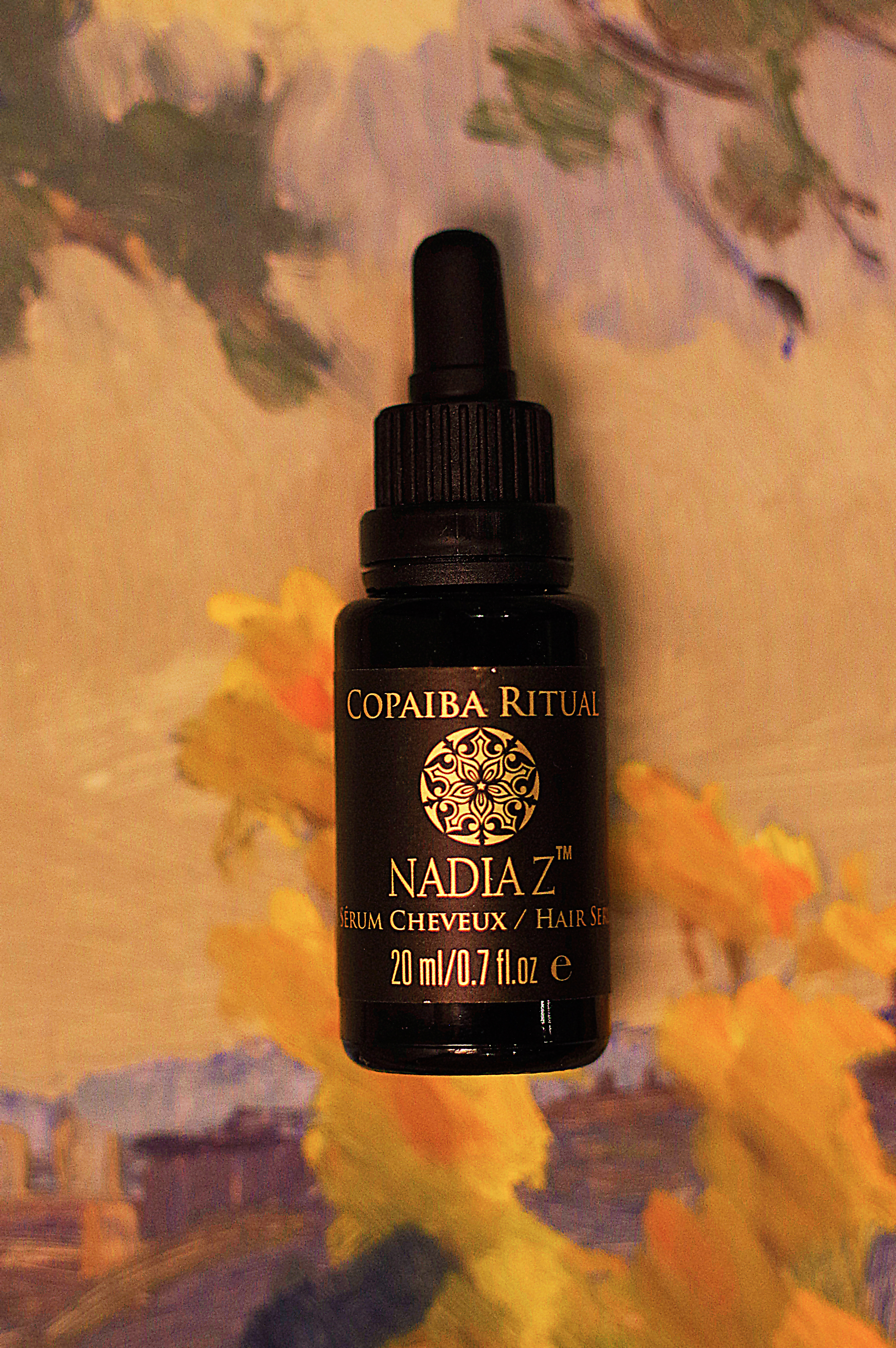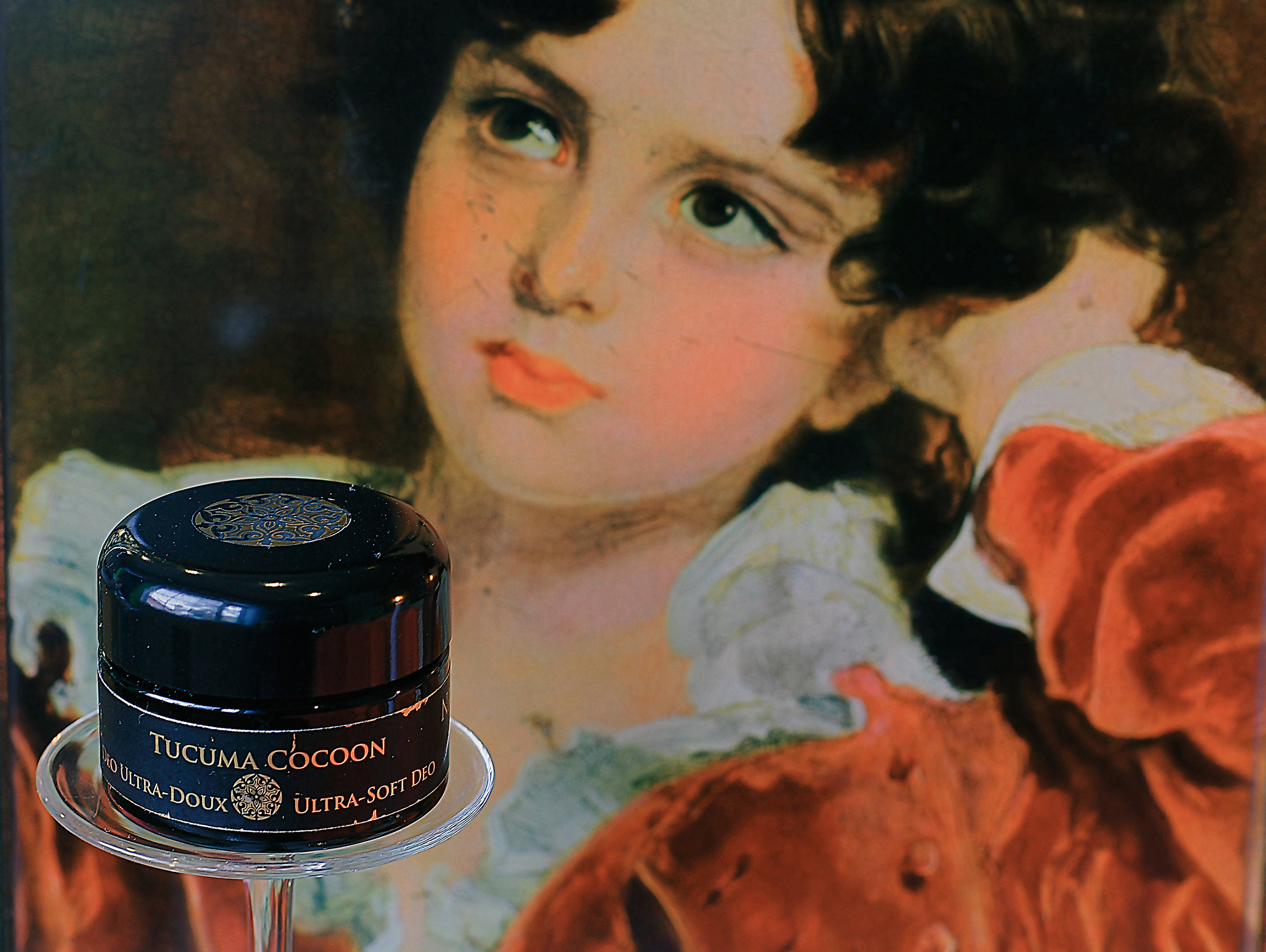How is the holistic approach represented when it comes to your range of personal care products, including perfumes?
Holistic can mean a lot of things. In the case of my brand, holisticness covers — ethical, ecological and health. It means that for each ingredient sourced, each product made and each manufacturing or business approach taken, those are integrated and held at the highest standard. This is why I have developed a model for social business (read more: http://nadiaz.ch/business-strategy-framework/), as well as the other links below the mission. In terms of health, it also means to pay attention to and take care of our number one organ, which is our skin, as well as the health of our respiratory system, which are all affected by cosmetics. This is why I make trustable products to be used all life long and do not compromise with fashionable features, such as doing scented cosmetics, or making not concentrated formulas that would mean using more harmful preservatives and texturers.
What's the best way for us customers to educate ourselves about the harmful ingredients found in beauty products and learn about the benefits of natural compounds?
As I can't list all, I think the most important is to read the ingredients of anything one buys. Then to follow the advice on very knowledgeable websites, books and eco-labels that all try to educate the public. Rita Stiens did a good book, although in French, and here is a reference website http://laveritesurlescosmetiques.com/
There is not one reference, but there are common points to many sites, books and labels. Unfortunately, when it comes to the label, there is not one reference, because some may put more accent on ethical trade, some more on ecology, others on health, whereas it is virtually impossible to have one covering it all, so people have to apply a critical judgement and learn to analyse basically their cosmetics ingredients rather than simply follow a label.
However, what ingredients should we definitely avoid in our personal care products?
Most importantly, people should keep away from petrochemical based products and highly scented cosmetics (VOC). Then they should favour products that are oil-based and do not need preservatives, such as water-based products. Avoid silicone formulas, nanomolecules, not only for the health but also because many of these products are micro-pollutants for the environment, which we do not really know how to treat (the current waste water treatment plants are facing growing difficulties in dealing with the complexity of micro-pollutants and their interactions in the environment).
Nadia Zuodar’s tips for choosing cosmetics & skincare products:
1. Choose natural over petrochemical cosmetics
2. Prefer unrefined oils to keep the properties. Avoid hydrogenitaded oils — this is a process to make oils buttery, like the way you do margarine. Unfortunately, it requires a lot of processing, bleaching, refining and then more industrial pollution. They do that in order to give a heavier texture cheaply, rather than add plants butter that are naturally heavy.
3. Essential oils are good, but not for every day — they have precious components but also allergens. Prefer vegetable oils for everyday use. There are so many plants so far not yet well known or valorised, like the ones you find in my web: Ucuuba, Mafura, Ximenia. Diversity is important, in order not to over-use resources. So people may refrain to have one ‘miracle’ ingredient, that is how marketing is made, but the result is that you have a high demand, when in fashion, and a drop when a new fashion comes. Behind those plants are full communities that require years of patient work to grow or harvest them and when demand drops, it may result in trees destroyed and replaced. On the other hand, when demand is too high, it results in the trees getting wiped out, such as Mysore sandalwood or Argan. So, like for food, people should valorise healthy diet with diversified food, the same with the plants in their cosmetics.
4. The more simple a cosmetic formula, the more effective it is. There is no reason to put 100 ingredients in cosmetics (I put more into my perfumes, but that is different in application). You want to have a good concentration of your plants, not a symbolic value for marketing. And to avoid all additions that are there for texture, hiding scents, colouring or the like. So, when you can read and see that the ingredients are simple and botanical, it is best.
5. Adapt your expectations, feel your cosmetics for a long period of time. A good cosmetic is the one that will embellish and make your skin feel more comfortable day after day and the longer time you use it. Avoid comparing products based on one application, some products may seem magical at first, but have no long-term effect and quite the opposite — only superficial effect. So give at least 2 weeks for your plant cosmetic to perform.
6. Not all botanicals are the same. Some oils are cheaper than others. Cosmetics made with sunflower oil, rice oil, coconut oil are good, but don't put them in the same basket with the ones using more valuable indigenous plants. Few products use those oils, because it make the formulation more expensive and because it is difficult to supply. If you take pomegranate oil, have a look at the tiny seed and imagine how much harder it is to get oil from this extraordinary fruit, rather than from coco. Remember that not all natural oils have the same value.
Shop here:
http://nadiaz.ch


